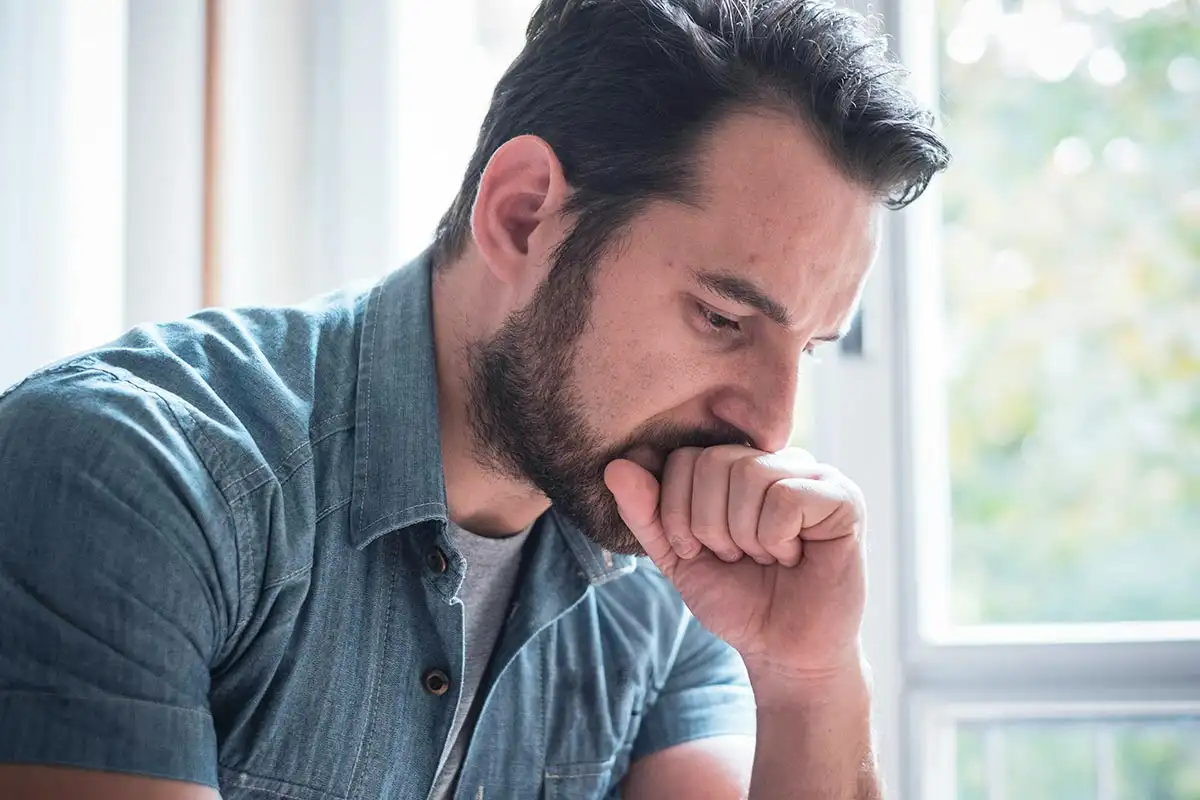
Finding Support as a Family Member: Orange County Virtual Resources
Medically Reviewed by:

Dr. Marco M. Zahedi
Medical Director, Compassion Recovery Center

Dr. Michael Majeski
Licensed Psychologist (LP), Compassion Recovery Center
Table of Contents
The Vital Role of Family in the Journey to Recovery
When a loved one is struggling with addiction, the impact ripples outward, touching everyone in the family. It’s a challenging and often heartbreaking experience, filled with confusion, worry, and a deep desire to help. The good news is that recovery is possible, and family support in addiction recovery is not just helpful—it’s often a critical ingredient for lasting success. Families are the bedrock of support, providing understanding, encouragement, and a stable environment that can make all the difference. In Orange County, California, a wealth of resources, particularly virtual ones, are available to help families navigate this difficult path and become powerful allies in their loved one’s healing journey. At Compassion Recovery Center, we understand the immense strength families possess and are dedicated to providing accessible, remote drug and alcohol rehab services, including robust support for family members, right here in Orange County through telehealth.
The journey of addiction recovery is rarely walked alone. While the individual with the substance use disorder must commit to change, the love, understanding, and active involvement of their family can significantly bolster their efforts. This doesn’t mean families need to become experts in addiction overnight, but rather that they have access to guidance, education, and their own support systems. Virtual resources have opened up new avenues for this, making it easier than ever for Orange County families to find the help they need, regardless of busy schedules or location. From online support groups to family therapy sessions conducted via telehealth, the options are expanding. If you’re looking for ways to support your loved one and yourself, we encourage you to reach out today to explore how our programs can help. Understanding these resources is the first step toward building a stronger foundation for recovery for everyone involved.

Understanding the Depth of Family Involvement in Healing
Addiction is often referred to as a “family disease” because its effects are rarely confined to the individual using substances. The entire family system can be profoundly affected, emotionally, financially, and socially. Family members may experience a range of emotions, from fear and anger to guilt and helplessness. Communication patterns can become strained or break down altogether. Trust may be eroded, and daily life can be consumed by the chaos and unpredictability that often accompanies active addiction. Sometimes, without realizing it, family members might fall into patterns of enabling behavior, where they inadvertently shield their loved one from the consequences of their actions, or codependency, where their own well-being becomes enmeshed with the person struggling. Recognizing these dynamics is crucial, not to place blame, but to understand that the family unit itself often needs healing and support alongside the individual in treatment.
The positive impact of informed and healthy family support in addiction recovery cannot be overstated. When family members are actively involved in the recovery process in a constructive way, it can:
- Increase Motivation: Knowing they have the love and support of their family can be a powerful motivator for individuals to enter and remain in treatment.
- Improve Treatment Outcomes: Research consistently shows that family involvement is linked to better treatment retention and long-term recovery rates.
- Provide Accountability: A supportive family can help reinforce the positive changes being made in treatment and provide a gentle source of accountability.
- Enhance Communication: Family therapy and education can teach healthier ways to communicate, resolve conflicts, and express needs and emotions. You might find our article on communicating with a loved one about their substance use helpful.
- Rebuild Trust: Recovery is a process, and family involvement provides opportunities to slowly rebuild broken trust through consistent, honest interactions.
- Create a Supportive Home Environment: Families learn how to create a home environment that supports sobriety, free from triggers and unhelpful dynamics. This includes setting boundaries to protect sobriety for everyone involved.
Discovering Virtual Support Resources in Orange County for Families
Living in Orange County provides access to many resources, and thankfully, a growing number of these are available virtually, making it easier for families affected by addiction to find support. Virtual support groups Orange County offer a lifeline, providing education, shared experiences, and a sense of community without requiring travel or adherence to rigid schedules. These groups can take various forms, including psychoeducational sessions that teach about addiction and recovery, peer support groups where members share their struggles and successes, and moderated online forums for ongoing discussion and encouragement. The key benefit is accessibility; family members can often join from the comfort and privacy of their own homes, fitting support into their already demanding lives.
One notable organization is NAMI Orange County (National Alliance on Mental Illness). While NAMI primarily focuses on mental health, there’s a significant overlap with substance use disorders, as many individuals experience co-occurring conditions, often referred to as a dual diagnosis. NAMI Orange County offers various support groups and educational programs, such as “Family-to-Family,” which is an evidence-based program for families of individuals with mental health conditions. Many of these services have virtual options, allowing family members to learn coping strategies, communication skills, and self-care practices, all vital when supporting a loved one with addiction and potential underlying mental health challenges.
Similarly, various community organizations and family-centered services in the Orange County area may offer virtual support groups specifically for families dealing with substance abuse. These groups provide a safe space where members can:
- Reduce Isolation: Knowing you’re not alone is incredibly powerful. Connecting with others who understand can alleviate feelings of loneliness and shame.
- Share Experiences and Advice: Members can share what has worked for them, offer practical advice, and provide emotional support.
- Learn Coping Mechanisms: Groups often focus on developing healthy coping skills for dealing with the stress and emotional toll of a loved one’s addiction.
- Gain Knowledge: Understanding the nature of addiction, the recovery process, and how to best support a loved one (without enabling) is crucial.
- Practice Self-Care: Family support groups emphasize the importance of family members taking care of their own well-being.

Intensive Outpatient Programs (IOP) and Their Role in Family Healing
An Intensive Outpatient Program (IOP) is a structured form of addiction treatment that allows individuals to receive comprehensive care while living at home and maintaining many of their daily responsibilities, such as work or school. Typically, IOPs involve several hours of therapy and counseling sessions per week. What many people may not realize is that effective IOPs, like those offered by Compassion Recovery Center, often incorporate significant components designed to support and involve the family. This family involvement is crucial because, as we’ve discussed, addiction impacts the entire family system, and healing for one member is often intertwined with healing for all.
For families, participation in an IOP can offer numerous benefits. These programs often include:
- Family Therapy Sessions: These sessions provide a safe, therapist-facilitated space for family members to communicate openly, address underlying issues, improve understanding, and develop healthier interaction patterns.
- Educational Workshops: Families can learn about the science of addiction, the recovery process, common challenges, relapse prevention strategies, and how to best support their loved one without enabling.
- Skill-Building: Families can acquire practical skills in communication, boundary setting, conflict resolution, and stress management, all essential for navigating the complexities of recovery. Learning how to support without enabling is a key focus.
- Support for Co-occurring Disorders: If the loved one is also dealing with mental health issues (a dual diagnosis), family education will cover how these conditions interact and how to support both aspects of recovery.
- Understanding Treatment Goals: Involvement helps families understand the goals of their loved one’s treatment plan and how they can contribute to achieving them.
Cognitive Behavioral Therapy (CBT) as a Tool for Family Support
Cognitive Behavioral Therapy, or CBT, is a widely recognized and highly effective form of psychotherapy. Its core principle is straightforward: our thoughts influence our feelings, and our feelings influence our behaviors. By learning to identify and change unhelpful or negative thought patterns, individuals can learn to manage their emotions more effectively and develop healthier behavioral responses. While CBT is a cornerstone of many individual addiction treatment programs, its principles and techniques are also incredibly valuable for families coping with a loved one’s substance use disorder. Access to online CBT therapy California has made this powerful tool more readily available to families throughout Orange County and beyond.
How can CBT specifically help families?
- Challenging Negative Thought Patterns: Family members often grapple with thoughts like, “It’s my fault,” “They’ll never get better,” or “I’m a failure as a parent/spouse.” CBT helps identify these automatic negative thoughts, examine the evidence for and against them, and replace them with more balanced and constructive perspectives.
- Managing Emotional Distress: Living with addiction can evoke intense emotions such as anxiety, anger, guilt, and profound sadness. CBT provides practical strategies for managing these emotions, reducing their intensity, and preventing them from overwhelming daily life. This can include relaxation techniques, mindfulness practices, and learning to tolerate distress. Our article on stress management tips can also be relevant for family members.
- Improving Communication: CBT can teach families more effective communication skills. This includes learning to express needs and feelings assertively (but not aggressively), listening actively, and engaging in constructive problem-solving rather than blame or criticism.
- Modifying Unhelpful Behaviors: Family members may unknowingly engage in behaviors that enable addiction or escalate conflict. CBT helps identify these patterns (e.g., making excuses for the loved one, avoiding confrontation, or engaging in arguments) and develop alternative, healthier responses. It can also help in setting boundaries with a loved one in recovery.
- Developing Coping Strategies: CBT equips families with a toolkit of coping strategies to deal with the ongoing stresses associated with a loved one’s addiction and recovery journey. This might involve problem-solving skills, stress reduction techniques, and self-care practices.
- Setting Realistic Expectations: Recovery is a process with ups and downs. CBT can help families develop realistic expectations, understand the nature of relapse (if it occurs), and maintain hope and resilience.
Understanding Medication-Assisted Treatment (MAT) and the Family’s Supportive Role
Medication-Assisted Treatment (MAT) is an evidence-based approach to treating substance use disorders, particularly opioid use disorder and alcohol use disorder. It combines the use of FDA-approved medications with counseling and behavioral therapies to provide a comprehensive, “whole-patient” approach. Common medications include methadone, buprenorphine (often known as Suboxone), and naltrexone. It’s crucial to understand that MAT is not simply “replacing one drug with another.” Instead, these medications work to normalize brain chemistry, block the euphoric effects of alcohol and opioids, relieve physiological cravings, and normalize body functions without the negative effects of the abused substance. This allows the individual to focus on their recovery, engage more effectively in therapy, and rebuild their life.
Families play a vital supportive role when a loved one is undergoing MAT treatment online (though medication dispensing itself is in-person, the counseling and support aspects can be virtual). Here’s how families can help:
- Educate Themselves: The first step is to learn about MAT. Understand how the specific medication works, its benefits, potential side effects, and why it’s a recommended part of their loved one’s treatment plan. Dispelling myths and misconceptions is key.
- Provide Non-Judgmental Support: Stigma surrounding MAT still exists. Family members can be powerful advocates by offering unwavering, non-judgmental support for their loved one’s choice to use this effective treatment. Reinforce that MAT is a legitimate medical intervention, similar to taking medication for diabetes or heart disease.
- Encourage Adherence: While respecting their loved one’s autonomy, families can offer encouragement for adhering to the medication regimen as prescribed. This might involve gentle reminders (if welcomed) or helping to create a stable environment that supports consistency.
- Participate in Counseling: MAT is most effective when combined with counseling and behavioral therapies. Family participation in therapy sessions can address relational issues, improve communication, and ensure everyone is aligned in supporting the recovery journey.
- Recognize and Celebrate Progress: Recovery is a journey, not a destination. Acknowledge and celebrate the milestones and positive changes that MAT, combined with therapy, helps facilitate.
- Help Manage Expectations: MAT is a powerful tool, but it’s not a magic bullet. Recovery takes time and effort. Families can help manage expectations and understand that challenges may still arise.
The Healing Power of Virtual Couples Counseling in Addiction Recovery
Addiction can place immense strain on romantic relationships. The very foundations of trust, intimacy, communication, and shared responsibility are often deeply eroded by the behaviors and consequences associated with substance use. Partners of individuals struggling with addiction may experience a profound sense of betrayal, loneliness, anger, and exhaustion. The relationship can become centered around the addiction, with one partner potentially taking on a caregiving or enabling role, and the other consumed by the substance use. For recovery to be robust and sustainable, addressing these relational dynamics is often essential, and virtual couples counseling rehab offers a flexible and effective way for Orange County couples to embark on this healing journey together.
Couples counseling, also known as couples therapy, provides a structured and supportive environment where partners can:
- Rebuild Trust: Addiction often shatters trust. Therapy offers a mediated space to address betrayals, work through feelings of hurt, and begin the slow, deliberate process of rebuilding trustworthiness and confidence in the relationship. For further reading, rebuilding trust after addiction is a key resource.
- Improve Communication: Destructive communication patterns (blaming, yelling, withdrawing) are common when addiction is present. Couples counseling helps partners learn healthier ways to express their needs, listen empathetically, and resolve conflicts constructively.
- Establish Healthy Boundaries: Therapy can assist couples in defining and maintaining healthy boundaries within the relationship, ensuring that both partners’ needs are respected and that the relationship supports individual recovery.
- Develop a Shared Understanding of Addiction: Counseling can educate both partners about the nature of addiction as a disease, reducing blame and fostering empathy. It helps the non-addicted partner understand the recovery process and how to be supportive.
- Address Codependency: If codependent patterns have developed, where one partner’s well-being is overly reliant on the other, therapy can help identify and modify these dynamics, fostering greater independence and mutual support.
- Co-create a Recovery-Supportive Relationship: Couples work together to identify triggers, develop strategies to support sobriety, and create a home environment and lifestyle that promotes long-term recovery for the individual and health for the relationship.
- Enhance Intimacy: Addiction often damages emotional and physical intimacy. As recovery progresses and communication improves, counseling can help couples reconnect and rebuild these vital aspects of their relationship.
How Compassion Recovery Center Champions Family Support
At Compassion Recovery Center, we firmly believe that addiction is not an individual struggle but a condition that deeply affects the entire family system. Consequently, we believe that family involvement and support are not just beneficial but integral to successful, long-term recovery. Our approach is systemic; we aim to heal not only the individual battling substance use but also to provide the family unit with the tools, understanding, and support they need to heal and grow together. Our specialized remote drug and alcohol rehab services, primarily serving Orange County through telehealth, are designed with family well-being at their core.
We integrate family support into our programs in several key ways:
- Family Therapy Sessions: With the client’s consent, we offer dedicated family therapy sessions conducted by experienced therapists. These sessions, available virtually for convenience, provide a confidential space for families to address issues, improve communication, understand addiction’s impact, and learn how to support their loved one effectively. This is a core component of our Virtual IOP Program.
- Educational Resources and Workshops: We provide families with comprehensive educational materials and opportunities to learn about the nature of addiction, the recovery process, co-occurring mental health conditions, and the dynamics of family systems affected by substance use. Understanding these aspects helps demystify addiction and empowers families to respond more effectively.
- Guidance on Healthy Support vs. Enabling: A common challenge for families is distinguishing between supportive behaviors and those that inadvertently enable the addiction. Our clinicians work with families to identify enabling patterns and develop strategies for offering genuine support that fosters responsibility and recovery. Our blog post on supporting a loved one without enabling offers valuable insights.
- Communication Skill-Building: We help families develop healthier communication patterns, teaching skills for active listening, expressing feelings constructively, and resolving conflicts in a way that strengthens relationships rather than damaging them.
- Boundary Setting: Learning to establish and maintain healthy boundaries is crucial for both the family members’ well-being and the loved one’s recovery. We guide families through this often-difficult process.
- Relapse Prevention Planning: Families are educated about relapse prevention and how they can contribute to a supportive environment that minimizes relapse risks. They learn to recognize warning signs and how to respond constructively if challenges arise.
- Referral to Community Resources: We connect families with valuable community support systems in Orange County, such as Al-Anon, Nar-Anon, or other virtual support groups Orange County, ensuring they have ongoing peer support beyond our direct services.
- Involvement in Treatment Planning (with consent): When appropriate and with the client’s permission, families can be involved in aspects of treatment planning and receive updates on progress, fostering a collaborative approach to recovery.
The Transformative Benefits of Telehealth for Family Support in Orange County
The rise of telehealth addiction treatment has revolutionized how individuals and families access care, and its benefits are particularly profound when it comes to family support. For families in Orange County grappling with a loved one’s addiction, telehealth services, like those offered by Compassion Recovery Center, remove many traditional barriers to participation, making vital support more accessible, convenient, and consistent. This technology allows therapists and families to connect securely and effectively, fostering healing and growth from the comfort of their own homes.
Here are some of the key advantages of using telehealth for family support in addiction recovery:
- Enhanced Accessibility: Orange County is geographically diverse. Telehealth eliminates travel time and costs, making support accessible whether a family lives in a bustling city center or a more remote area. It also benefits those with mobility issues or limited transportation. Our blog on accessibility in recovery delves deeper into this.
- Unmatched Convenience and Flexibility: Family members often juggle demanding schedules with work, childcare, and other personal commitments. Telehealth allows them to attend therapy sessions or educational workshops from home or any private location, making it far easier to integrate support into their lives. This is a key aspect of how virtual IOP fits into a busy schedule.
- Increased Privacy and Reduced Stigma: Seeking help for addiction-related family issues can feel daunting. The privacy of receiving support at home can reduce feelings of stigma or embarrassment, encouraging more families to reach out.
- Improved Consistency of Participation: Because telehealth is so convenient, family members are often more likely to attend sessions regularly. Consistent participation is key to making progress in therapy and learning new skills.
- Inclusion of Dispersed Family Members: Families aren’t always in one location. Telehealth makes it possible for family members who live apart – perhaps a child away at college, or separated parents – to participate jointly in therapy sessions, fostering a unified approach to support.
- Comfort of a Familiar Environment: Discussing sensitive family issues can be easier in the familiar and comfortable setting of one’s own home, potentially leading to more open and honest communication.
- Access to Specialized Providers: Telehealth can connect Orange County families with specialized therapists and programs, like those at Compassion Recovery Center, that might not be available in their immediate local vicinity if they were seeking in-person services only.
Embracing Virtual Support: A Path to Family Healing and Strength
The journey of addiction recovery is undoubtedly challenging, but it’s a path that no family in Orange County has to walk alone. As we’ve explored, the active, informed, and healthy involvement of family members is a cornerstone of lasting sobriety and well-being for an individual struggling with substance use. More than that, it’s an opportunity for the entire family unit to heal, grow stronger, and rebuild bonds that may have been strained by addiction. The advent of comprehensive virtual resources, from telehealth therapy sessions to online support groups, has made accessing this vital support more feasible and convenient than ever before.
From understanding the profound role family plays in recovery, to exploring specific resources like virtual support groups Orange County, remote IOP programs, online CBT, and virtual couples counseling, it’s clear that help is available in many forms. Organizations like NAMI Orange County and specialized treatment centers such as Compassion Recovery Center are dedicated to providing these lifelines. Understanding how to support a loved one through Medication-Assisted Treatment (MAT) or navigating the complexities of dual diagnosis treatment becomes less daunting when families have access to education and professional guidance.
The benefits of telehealth, in particular, have opened new doors, offering unparalleled accessibility, convenience, and privacy. Compassion Recovery Center is proud to be at the forefront of providing these innovative remote services to the Orange County community, ensuring that high-quality drug rehab and alcohol rehab care, complete with robust family support, is within reach. We encourage you to remember that seeking help is a sign of strength, both for your loved one and for your family. Taking that first step can lead to profound positive changes and a future filled with hope and healing. If you are ready to explore how your family can find support and contribute positively to the recovery journey, we invite you to get help now. You can also verify your insurance online or start your free assessment with Compassion Recovery Center today. Your family’s well-being is important, and we are here to help you navigate the path forward.
What virtual support groups are available for families in Orange County?
How can family members participate in Intensive Outpatient Programs remotely?
What is the role of Cognitive Behavioral Therapy in supporting families?
How does Medication-Assisted Treatment involve family support?
Can couples counseling be accessed virtually for addiction recovery?
What services does Compassion Recovery Center offer for family support?
What are the benefits of using telehealth for family support in addiction recovery?
Struggling to balance life while needing support? Get expert virtual care and start your recovery journey, anytime, anywhere.
We’re learning more each day.
Researchers and doctors are making exciting progress in understanding mental health and addiction—bringing hope to millions.
Your genes don’t define you.
Genetics can play a part, but they don’t decide your future. Mental health is shaped by many factors, and healing is always possible.
There's no one-size-fits-all.
The right treatment often includes a mix of therapy, medication, and compassionate care—tailored just for you.


















